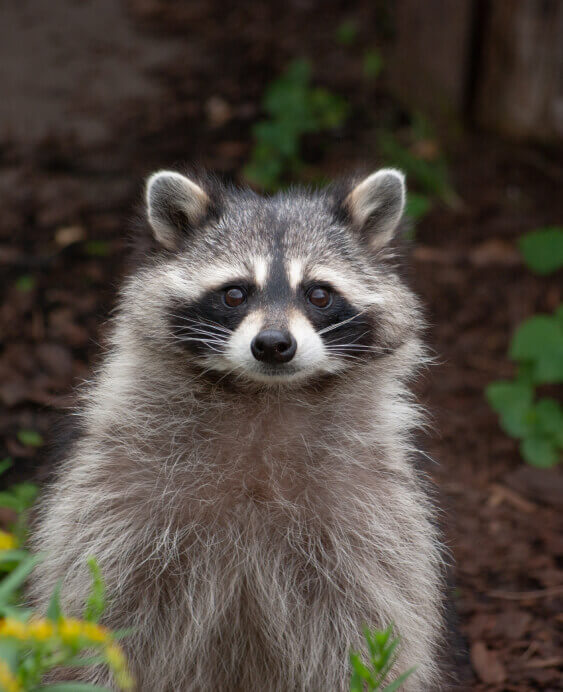
We receive more calls for raccoon removal than any other wild animal.
Reproduction: Raccoons usually mate in January or February. Litters or kits are usually born in April or May. Raccoon litters range in size from one to nine, although the average is around four. By June, most young raccoons already accompany their mother on food searches and begin to learn survival skills.
Distribution: Raccoons in the attic or crawl space can be destructive. Raccoons often damage electrical wiring, ductwork, vents, soffits, roofs, walls, and ceilings, and use your home as a latrine.
HEALTH ALERT!
Raccoon feces contain roundworm. The feces should be treated as hazardous waste and removed. Some insurance companies cover raccoon damage and cleanup, some do not. Deductibles usually apply, Some insurance companies also have coverage limits.
Trapping per raccoon costs around $175-400. Removing a dead raccoon costs around $275, while getting rid nest of kits (baby raccoons) costs around $550.
However, the best option for permanent animal removal is repair and exclusion. The cost of this service fluctuates based on factors involved
